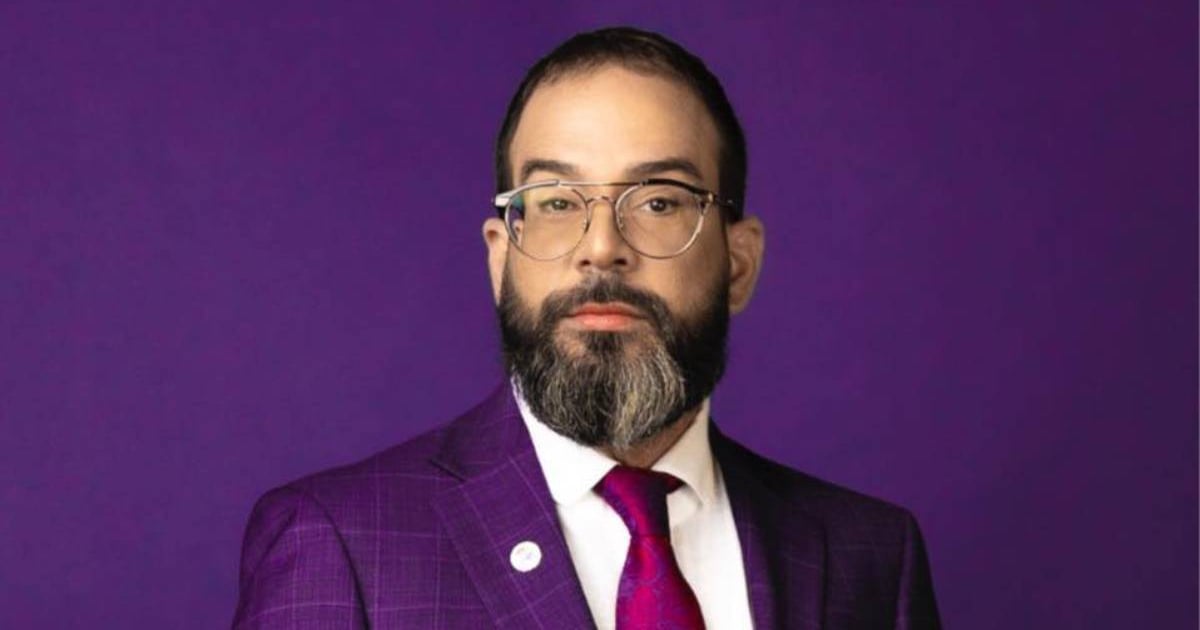In a twist of irony, Cuban host Alexander Otaola responded this Sunday to the news that the U.S. government has started notifying beneficiaries of the humanitarian parole, including Cubans, about their legal status being revoked. "Suddenly, the flood of reunion videos seems to have dried up. Has nobody longed for the old neighborhood walks anymore?" he commented on Facebook, referencing the fading enthusiasm among Cuban immigrants who once expressed excitement about arriving in the U.S. under this parole program, now facing the prospect of returning to the island.
Otaola continued his critique by questioning, "Wasn't family meant to come first? What has changed?" He pointed out the inconsistency of those who once expressed nostalgia for leaving Cuba but now appear to contradict their previous sentiments.
The host's controversial post sparked various reactions. Sheyla Sotolongo retorted, "How cynical you are. I feel the same disgust that Díaz-Canel gives me. My children cry because their dad couldn't come to see them. Yes, the same father who had to leave them to seek better opportunities and a brighter future for his family, escaping the dictatorship. Oti, you're just another dictator."
Conversely, Leonor De Las Casas remarked, "Can't people interpret properly? They hate Alexander Otaola so much that they miss the point. He's not talking about Cubans coming or going; he's referring to agency propaganda and the like. It's astonishing how people living in Cuba comment without understanding!"
Humberto Carlos Torres Hornia expressed his discontent, stating, "Just because you don't have family in Cuba doesn't mean others shouldn't visit theirs. Not everyone is going to spend money on hotels. Where is the freedom that's so praised in this country? Do we now have to do as others please? That's not the freedom we all want."
Lázaro Carlos Cuesta Rodríguez added, "Here's the thing: a person like you, without feelings, family, or a sense of belonging, obviously thinks this way. Once you know what it's like to have family, a mother, a father, or a child, you'll understand the importance of those videos. Feed your heart with love and affection and take an antidote for the poison you carry."
Alexander Otaola has consistently maintained an outspoken stance on Cuban migration issues in the United States. In January, he reassured Cubans holding I-220A and I-220B immigration documents, stating that those acting responsibly and in the process of legalizing their status would not face deportation.
According to him, only those with criminal records or ties to the Cuban regime should be concerned. "You won't be deported," he asserted, as long as you abide by the law, work, and keep your status current.
In February, during his "Hola Ota-Ola" show, the influencer warned of a massive review of 42,000 to 47,000 political asylum cases filed by Cubans in recent years. He claimed U.S. authorities were scrutinizing these files for potential fraud, particularly focusing on those who returned to Cuba after gaining asylum status. In a stern tone, Otaola emphasized that those who have manipulated the immigration system shouldn't complain if they face legal repercussions.
Recently, Otaola publicly supported Congressman Carlos Giménez's call for the deportation of dozens of Cubans with regime ties, many of whom benefited from humanitarian parole. During his remarks, Otaola praised the report submitted to the Department of Homeland Security and celebrated the beginning of a crackdown against what he describes as the infiltration of Cuban enforcers. This endorsement marked a shift in his relationship with the politician, whom he had criticized days earlier for alleged inaction.
Understanding the Implications of U.S. Parole Revocation for Cubans
What led to the revocation of the humanitarian parole for Cubans?
The U.S. government has started revoking the humanitarian parole status due to concerns about immigration fraud and ties to the Cuban regime among some beneficiaries.
How has Alexander Otaola reacted to the U.S. government's decision?
Alexander Otaola mocked the situation by questioning the fading enthusiasm among Cuban immigrants and criticized those he perceives as inconsistent in their actions and sentiments.
What advice did Otaola offer to Cubans with U.S. immigration documents?
Otaola advised Cubans with I-220A and I-220B documents that they would not be deported if they comply with laws, work, and maintain their status, except those with criminal records or regime ties.
